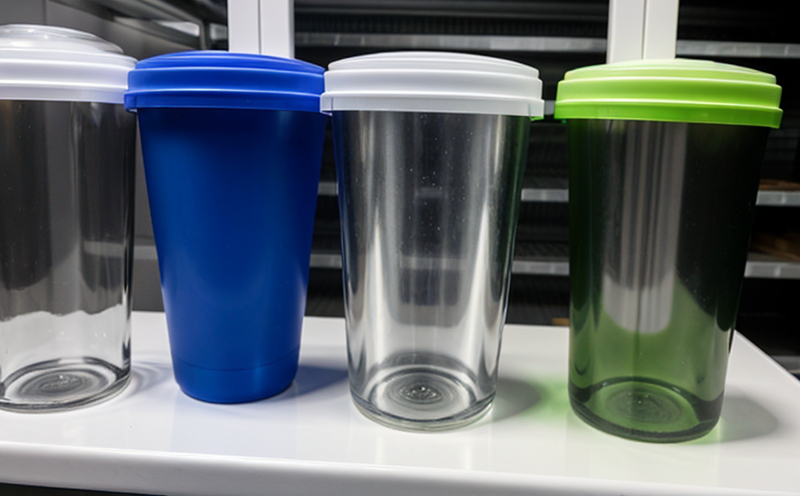ISO 719 Glass Thermal Expansion Coefficient Testing
The ISO 719 standard provides a precise method for measuring the coefficient of thermal expansion (CTE) of glass materials. This test is crucial in ensuring that glass packaging meets quality and safety standards, especially when used in environments with varying temperatures.
Thermal expansion coefficients play a significant role in the design and performance of glass packaging. Variations in temperature can cause stress on the material leading to potential cracks or fractures if not adequately accounted for during manufacturing. Accurate determination of thermal expansion ensures that the glass maintains its integrity, strength, and stability across different environmental conditions.
The testing process involves subjecting a sample to controlled heating and cooling cycles while monitoring the linear dimensions using high-precision instruments such as dilatometers or laser interferometers. The change in length is then used to calculate the thermal expansion coefficient according to the formula:
\[ CTE = \frac{\Delta L}{L_0 \cdot \Delta T} \]Where \( \Delta L \) represents the change in length, \( L_0 \) denotes the original length of the sample, and \( \Delta T \) is the temperature difference between initial and final readings. This calculation allows for precise characterization of how much a given piece of glass will expand or contract under specified temperature conditions.
Understanding these properties helps manufacturers optimize their products by selecting appropriate materials that can withstand thermal cycling without compromising performance. For instance, pharmaceutical companies often rely on this information to ensure the longevity and effectiveness of containers used for storing sensitive medications.
In addition, ISO 719 is widely recognized in industries like electronics, where thermal management is critical. Properly designed packaging ensures that components remain operational even after prolonged exposure to high or low temperatures.
Compliance with this standard not only enhances product reliability but also supports regulatory requirements such as those set forth by the Food and Drug Administration (FDA) in the United States. By adhering to international standards like ISO 719, businesses demonstrate their commitment to maintaining high-quality products that meet global expectations.
Furthermore, accurate measurement of thermal expansion coefficients aids in predicting long-term behavior of glass under real-world conditions. This predictive capability is invaluable for research and development teams who need reliable data to inform design decisions early on in the product lifecycle.
Applied Standards
The primary standard used for this testing method is ISO 719-1:2018, which specifies the procedure for determining the linear thermal expansion of glass materials. Additionally, several other international standards may be relevant depending on specific application needs:
- ASTM C423 – Standard Test Method for Linear Thermal Expansion of Glass by Dilatometry
- EN 1058:2016 – Determination of linear thermal expansion and coefficient of thermal expansion of glass materials
- IEC TR 60974-1 – Guidelines for the application of thermal cycling tests to electrical and electronic equipment
These guidelines provide additional context on how different types of samples should be prepared and tested, ensuring consistency across various laboratories worldwide.





